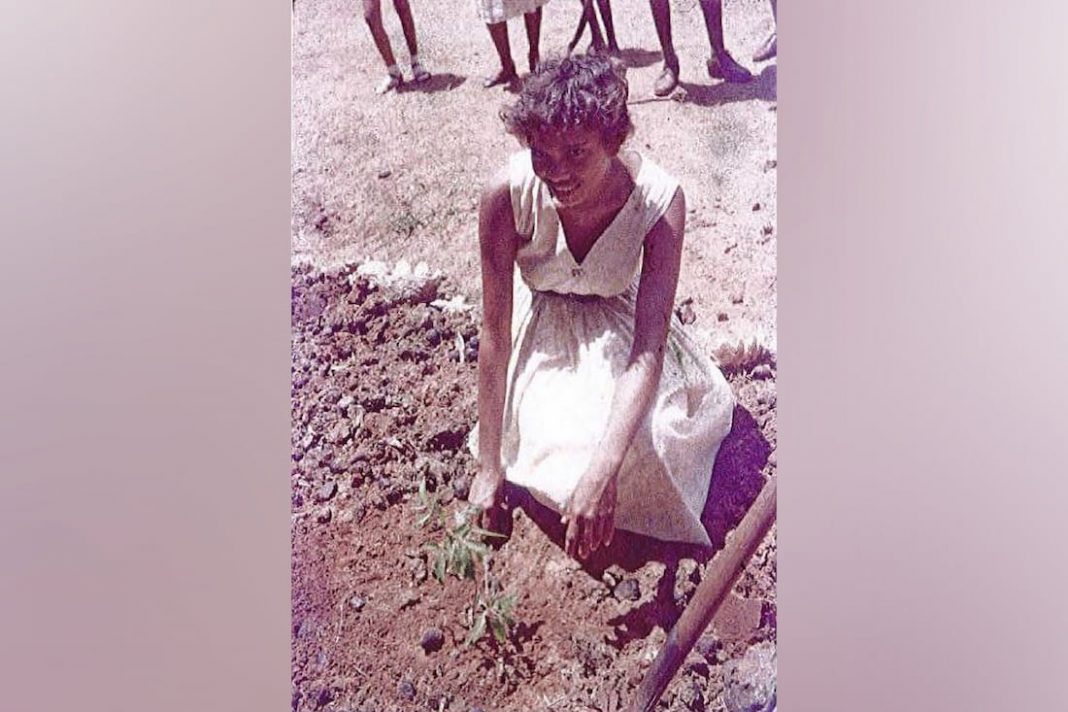A $50 million class action settlement between the federal government and families of the stolen generation snatched from their homes in the Northern Territory has been given the green light by a judge.
In the NSW Supreme Court on Monday, Justice Robert Beech-Jones approved the settlement after hearing that the lawyers and funder behind the case would only take up to 20 per cent of the total amount paid by the Commonwealth to resolve proceedings.
“(The deductions are) so far down the scale that I wouldn’t even hesitate about approving it at a macro level,” the judge said immediately after a hearing.
It was in the “overwhelming best interests” for all that the settlement be approved and steps are taken to distribute the money, Justice Beech-Jones said.
The class action, launched by Shine Lawyers in April 2021, sought compensation for alleged breaches of a duty of care owed to Indigenous Australians forcibly removed from their families in the NT between 1912 and 1973.
In August 2021, the NT government announced a redress scheme for those members who were still alive.
One year later, it agreed to settle the class action, excluding those eligible for the redress scheme.
Around 1200 people can now be compensated, including carers and siblings of stolen generation members and the estates of those taken from their families who are now deceased.
Among them is lead plaintiff Natalie Ellis, whose mother Marita Parnell was snatched from her family at Elsie Station in 1941. Mrs Parnell passed away in 2014.
Eileen Cummings was less than five years old when she was removed from her parents at Mainoru Station in 1948. She returned to her family and her country when she was 19 years old and turns 80 this year.
She told AAP she was delighted the settlement had been approved and that the children of those taken would finally get something.
“We never, ever got over being removed from our mothers and our country and our people, and our children had to live with that,” she said.
The money was never the focus, she added.
“We just wanted them to acknowledge our history and to take responsibility for what they did to us. That’s all we asked the government to do.”
Ms Cummings was leading the class action until she accepted a payment from the redress scheme and was replaced by Ms Ellis in September 2022.
Shine’s joint head of class actions Vicky Antzoulatos said the case allowed Australia to confront the “appalling race-based policies” that existed less than a century ago.
“The stolen generation is one of the darkest chapters in our country’s history, which no amount of money will ever make up for. It’s our hope though that this settlement will go some way towards helping with the healing process,” she said.
“This settlement marks an important step towards acknowledging the extreme harm caused by past segregation policies and practices to First Nations peoples.”
Shine will be given $1.9m out of the settlement to cover its legal costs, after successfully gaining permission to expand this from an initial $1.5m cap.
Future costs for Shine’s work in assessing the claims of Indigenous Australians and distributing the money were also sought.
Litigation Lending Services was granted a commission of $5.5m, plus an additional $1m paid for after-the-event insurance covering its financial risks for backing the class action.
Compensation will be paid at relative rates, with 1000 families of deceased stolen generation members receiving the highest estimated amounts of $35,000 on average.
Over 100 carers and siblings who are still alive will receive a lower payment of about $23,000 while just under 100 estates of deceased carers and siblings will receive around $11,000.



